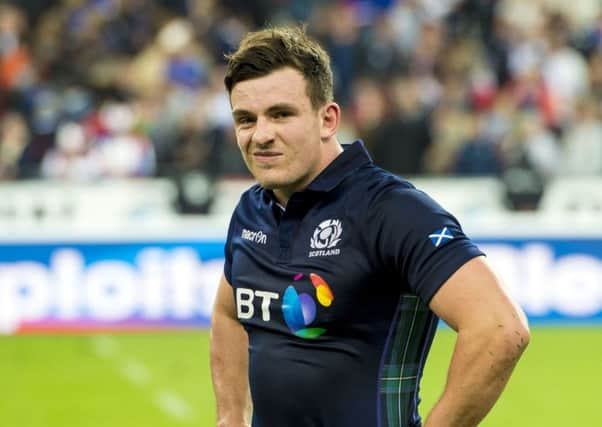Rugby World Cup kicks off with Scotland on form


No team that is blessed with the likes of Nemani Nadolo, Niko Matawalu, Akapusi Qera, Leone Nakarawa, Waisea Nayacalevu, Vereniki Goneva and Josh Matavesi is going to be taken lightly by anyone, not even a full-strength England team with the advantage of playing in front of a full house at Twickenham. But before you slap the mortgage money on the mother and father of all upsets, the bookies have Fiji as 27-point underdogs and those gentlemen aren’t often wrong, at least not by 27 points.
While one underdog usually gets squashed flat – Namibia leaked 142 points to the Wallabies in one forgettable match back in 2003 – another side from the lower levels of the food chain jumps up and bites the big boys in the backside. In the 2007 World Cup Tonga pushed the Springboks to the wire, an unheralded Argentina team beat the hosts France twice, just to prove the opener wasn’t a fluke, and Georgia finished within four points of Ireland. In 2011 Tonga beat finalists France in the pool stage and Georgia gave Scotland a fearful hurry up in the opening game.
Advertisement
Hide AdAdvertisement
Hide AdRugby doesn’t lend itself to shock results the way football does because the big boys can usually bully their way to a win even when playing below par, but it will happen at some point. Knowing when is the tricky part, but Canada, Georgia and Tonga are flying under the radar while the Fijian squad are probably stuffed too full of high-profile match-winners to surprise anyone.
At the opposite end of the scale, New Zealand start in pole position as they have done in almost every tournament since 1987, 2003 being the odd one out when England expected and England delivered. But the All Blacks are vulnerable, as the Wallabies proved, and the tighter, nervy, suffocating nature of World Cup rugby does not suit their high-octane running game. New Zealand will surely play either France or Ireland in the quarter-finals and either opponent will go into that game scenting an upset.
The remaining contenders for the main prize are bubbling just under the All Blacks: England, Australia, South Africa and France, the usual suspects, plus Ireland and Wales. Whoever wins Pool A will have the easier draw but with three cup contenders in the same pool and just two tickets to the quarters there is a danger that the two teams still standing when the smoke clears will be so utterly exhausted that they promptly get mugged in the quarter-finals. Scotland certainly hope so.
If Scotland do have to face England at Twickenham in that quarter-final, and they do so with something like their strongest XV, they will go to that graveyard of Scottish dreams with greater levels of belief and expectation than for many a long year while remaining rank outsiders. Scotland have cobbled together their best squad in a generation but they are still ranked a lowly tenth in the world, behind Fiji and Argentina, and coach Vern Cotter simply cannot afford to lose several key players, Matt Scott among them. He is the only back in Scotland’s starting line-up who can carry the ball in amongst the heavy traffic.
Any pretence that performance trumps results is dropped during the World Cup and here’s the rub. Over the last few years Scotland’s problem is not that they don’t win any matches, it is that Scotland don’t win the matches that matter. The Scots have under-performed when the stakes are highest and won when no one is watching.
In 2012 in Newcastle (NSW), Wallaby scrum-half Will Genia was more concerned about avoiding hypothermia than he was about avoiding defeat by the Scots. Twice in the last 12 months the Scots have bested Argentina, both at BT Murrayfield and in South America, but twice in the last two World Cups those roles have been reversed.
Throw in the statistic that Scotland have won just three of their 20 Six Nations matches in the four years since the 2011 World Cup and you understand that the current, modest revival in fortunes is not about to persuade Samoa to forfeit that Newcastle decider.
The three-point loss to France in Paris was encouraging with Scotland’s forwards at their most physical since anyone can remember and John Hardie silencing anyone who doubted his adherence to the thistle rather than the fern.
Advertisement
Hide AdAdvertisement
Hide AdThe Scots were physical and committed but they need to back up that performance with a good many more, constructed along the exact same combative lines, before any of the favourites will view Scotland as anything other than a speed bump on the road to the next round.